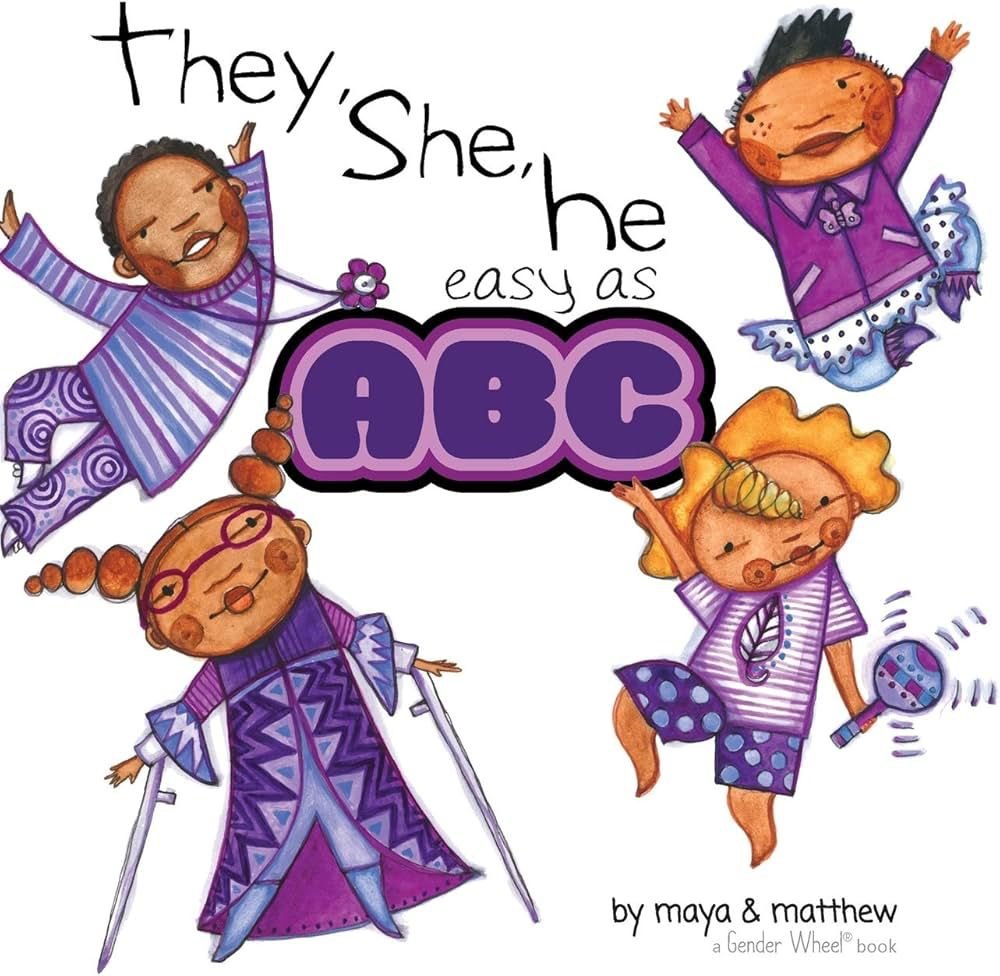 |
| Can be found HERE in the CCL |
By Gretchen Garrity
One of the first actions of the Trump Administration was to properly identify and define the two sexes -- male and female. A executive order from the White House has directed: "Agencies shall remove all statements, policies, regulations, forms,
communications, or other internal and external messages that promote or
otherwise inculcate gender ideology, and shall cease issuing such
statements, policies, regulations, forms, communications or other
messages. Agency forms that require an individual’s sex shall list male
or female, and shall not request gender identity. Agencies shall take
all necessary steps, as permitted by law, to end the Federal funding of
gender ideology."
 |
| Found HERE in the CCL |
The executive order clearly defines the biological and common sense reality of creation, and guts any pretense of gender ideology:
"(f) “Gender ideology” replaces the biological category of sex with
an ever-shifting concept of self-assessed gender identity, permitting
the false claim that males can identify as and thus become women and
vice versa, and requiring all institutions of society to regard this
false claim as true. Gender ideology includes the idea that there is a
vast spectrum of genders that are disconnected from one’s sex. Gender
ideology is internally inconsistent, in that it diminishes sex as an
identifiable or useful category but nevertheless maintains that it is
possible for a person to be born in the wrong sexed body.
(g) “Gender identity” reflects a fully internal and subjective sense
of self, disconnected from biological reality and sex and existing on
an infinite continuum, that does not provide a meaningful basis for
identification and cannot be recognized as a replacement for sex."
Read the complete executive order HERE. It is a glorious return to reality. The nightmare of gender ideology has taken a mortal blow. The repercussions will be wide-ranging. Some of the federal documents that have been rescinded include:
"(i) “The White House Toolkit on Transgender Equality”;
(ii) the Department of Education’s guidance documents including:
(A) “2024 Title IX Regulations: Pointers for Implementation” (July 2024);
(B) “U.S. Department of Education Toolkit: Creating Inclusive and Nondiscriminatory School Environments for LGBTQI+ Students”;
(C) “U.S. Department of Education Supporting LGBTQI+ Youth and Families in School” (June 21, 2023);
(D) “Departamento de Educación de EE.UU. Apoyar a los jóvenes y familias LGBTQI+ en la escuela” (June 21, 2023);
(E) “Supporting Intersex Students: A Resource for Students, Families, and Educators” (October 2021);
(F) “Supporting Transgender Youth in School” (June 2021);
(G) “Letter to Educators on Title IX’s 49th Anniversary” (June 23, 2021);
(H) “Confronting Anti-LGBTQI+ Harassment in Schools: A Resource for Students and Families” (June 2021);
(I) “Enforcement of Title IX of the Education Amendments of 1972
With Respect to Discrimination Based on Sexual Orientation and Gender
Identity in Light of Bostock v. Clayton County” (June 22, 2021);
(J) “Education in a Pandemic: The Disparate Impacts of COVID-19 on America’s Students” (June 9, 2021); and
(K) “Back-to-School Message for Transgender Students from the U.S. Depts of Justice, Education, and HHS” (Aug. 17, 2021);"
 |
| Found HERE in the CCL |
Parents who have children in the public schools in Christian County should require confirmation from their school boards that these gender policies and documents are being abandoned immediately. If the schools were smart, they would also take stock of the books in their libraries that push the false teachings of gender ideology.
The Christian County Library has dozens of books that push gender ideology on children as young as toddlers. Some of them are referenced HERE and HERE. The library board should revisit the library's collections policies regarding the process by which books are chosen for a juvenile audience.
According to the CCL's Policy Manual, p. 8, "The Library's material selection committee is comprised of staff from both the Collection Services and Youth Services departments and is responsible for the selection of materials using guidelines set by the Director of Collection Services and the Director of Youth Services. Other staff and patrons can make suggestions for purchase. The committee consults various sources and uses the following criteria when making selections:
- Reviews from professional journals, popular magazines, and other media.
- Expressed or anticipated patron demand.
- Timeliness or permanence of the material.
- Quality, accuracy, or authenticity of materials.
- Inclusion of materials in a special bibliography or index.
- Scope and depth of our present collection or the availability of materials at other libraries in the area.
- Reputation or authority of the author or publisher.
- Format and price of material as well as space available to house it.
No single criterion is used to justify a purchase; materials selectors consider all the criteria in reaching a decision. The Director of Collection Services and the Director of Youth Services make all final acquisition decisions."
Something has gone wrong. Taxpaying citizens are left out of the decision process except to be able to suggest materials. That there are hundreds of age-inappropriate books geared toward minors has been THE ongoing issue in the CCL for two years now.
Perhaps the Director of Collections Services and the Director of Youth Services will be more open to revisiting the bullet point of "quality, accuracy, and authenticity" of the materials being chosen for children regarding gender ideology.
There are other selection criteria that rely on the logical fallacy of an appeal to authority. There is nothing that refers to community standards as a criteria for book selections. The federal government has properly defined that one's biological sex is immutable, and that "Gender
ideology is internally inconsistent, in that it diminishes sex as an
identifiable or useful category but nevertheless maintains that it is
possible for a person to be born in the wrong sexed body."
It is an opportune moment for the CCL to review its children's collection and determine the quality, the accuracy, and the authenticity of its gender ideology materials.









:max_bytes(150000):strip_icc()/soup-nazi_320-7a0e6d28af174e4492140eb75b6e8e3e.jpg)